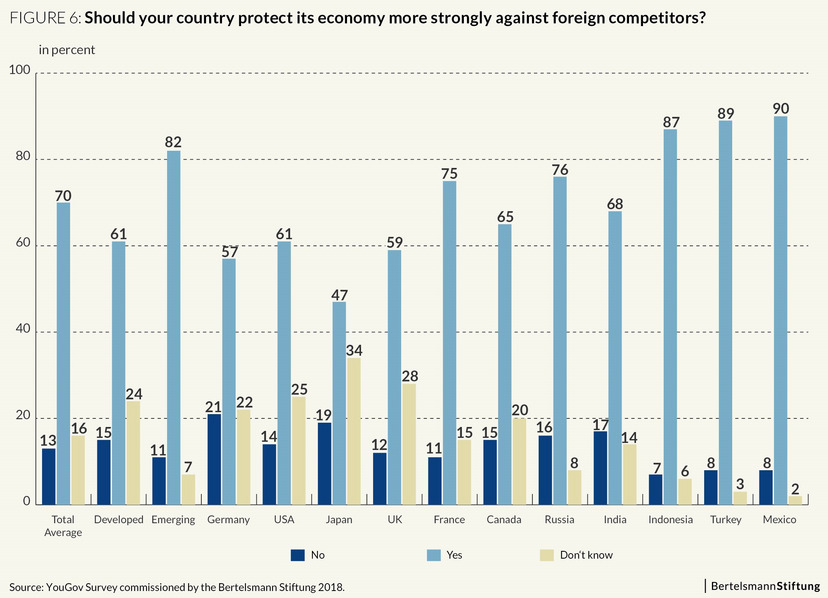Many people in the countries of the survey feel inadequately protected by their respective governments against negative effects of trade and globalization, both in developed and emerging economies. While most people agree that there are many positives in terms of growth and living standards, they also perceive negative side-effects on social inequalities, job security and wages.
This is shown by our international survey conducted by YouGov. More than 14,000 people in a dozen emerging and developed economies were surveyed on their attitudes towards trade and globalization.




